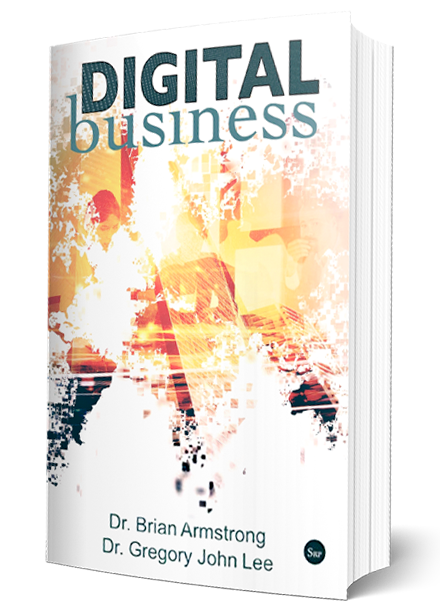 Dell’s Digital Transformation Index 2020 surveyed over 4000 business leaders globally and reported that eight in ten organisations fast-tracked their digital transformation programmes in 2020. Technology is evolving rapidly and organisational responses to this process of change are forever dynamic and accelerating. In Digital Business, a new book written by Prof. Brian Armstrong, Chair of Digital Business at Wits Business School, and Prof. Gregory John Lee, a member of the Digital Business team at Wits Business School, the duo provide ample breadth and depth on the key topics of business in the digital era, even as these “live” areas of research are transforming the way we do business every day. The book is a thrilling new text on the fourth industrial revolution and its intersections with business, organisational strategy, digital transformation, and change.
Dell’s Digital Transformation Index 2020 surveyed over 4000 business leaders globally and reported that eight in ten organisations fast-tracked their digital transformation programmes in 2020. Technology is evolving rapidly and organisational responses to this process of change are forever dynamic and accelerating. In Digital Business, a new book written by Prof. Brian Armstrong, Chair of Digital Business at Wits Business School, and Prof. Gregory John Lee, a member of the Digital Business team at Wits Business School, the duo provide ample breadth and depth on the key topics of business in the digital era, even as these “live” areas of research are transforming the way we do business every day. The book is a thrilling new text on the fourth industrial revolution and its intersections with business, organisational strategy, digital transformation, and change.
Digital Business is relevant and indispensable for managers and members of all types of organisations, business owners, business students, consultants, 4IR experts, government leaders, and others who are affected by the ongoing technological revolution of our age. This version is especially relevant to South African readers, although the nature of the South African economy suggests strongly that local elements could be extremely relevant to other emerging market contexts.
Combining cutting-edge fourth industrial advancements with the timeless wisdom of organisational and management theory, Digital Business is neatly structured in five parts comprising twenty chapters:
- Part I offers an introduction to digitalisation and digital business
- Part II expands on the major technologies powering the fourth industrial revolution
- Part III focuses on traditional perspectives of strategy and how the digital era affects these views
- Part IV is a more directed section that unpacks specific topics on strategy in the digital age
- Part V covers topics in digital transformation and change management
What are the implications for organisational strategy?
Does strategy change fundamentally, or rather adapt traditional thinking and models to new realities?
How do organisations effectively and correctly transform themselves to these forces, in order to thrive in our new realities?
These are just some of the questions Professors Armstrong and Lee address with comprehensive boldness.
Digital Business is essential reading for our time. It has become practically axiomatic that technology is a pervasive and accelerating influence on organisations, with wide-reaching impacts on every level of management and business function, from product design and customer experience to human resource management, finance and all other areas of organisational functioning.
An international edition of Digital Business will be forthcoming for those wishing for a greater emphasis on developed world contexts and illustrations.
About the authors
Prof. Brian Armstrong is Chair of Digital Business at Wits Business School. He is a foremost ICT industry leader in South Africa, with over 30 years of top-level management experience in telecommunications, IT and technology R&D. He is widely regarded as a thought leader in digitalisation, convergence, technological disruption and business strategy. Previously, among other roles, Brian was Group Chief Operating Officer and Group Chief Commercial Officer at the Telkom Group, as well as British Telekom’s Vice President for Middle East and Africa. Brian has a MSc in Engineering and obtained his PhD from University College London in 1992. He is an acclaimed speaker on digital transformation and its socio-economic impacts.
Prof. Gregory John Lee is a member of the Digital Business team at Wits Business School. He is a leading expert in digital transformation, with a specific focus on the transformation of work and workplaces through robotic process automation and analytics. He is a leading figure in business analytics, including big data analytics, for Human Resource Management (HRM). He has written seminal South African books on the topics of analytics in HRM, business analytics and data, organisational design, development and people management, and digital business.

